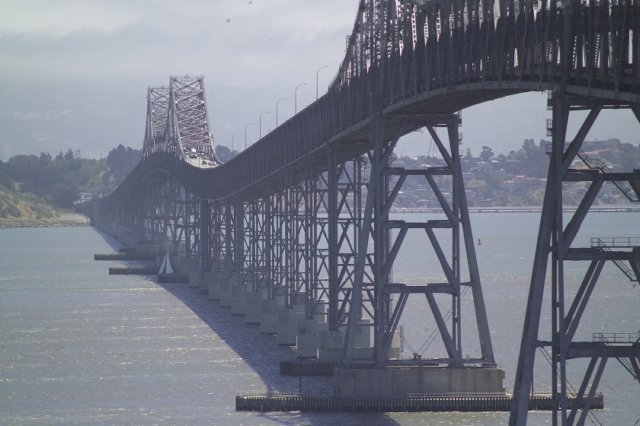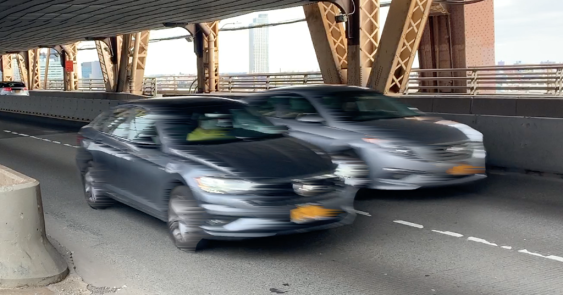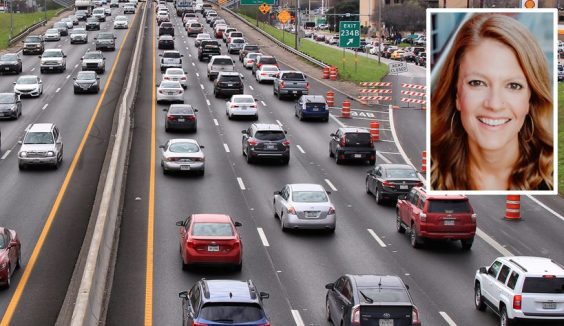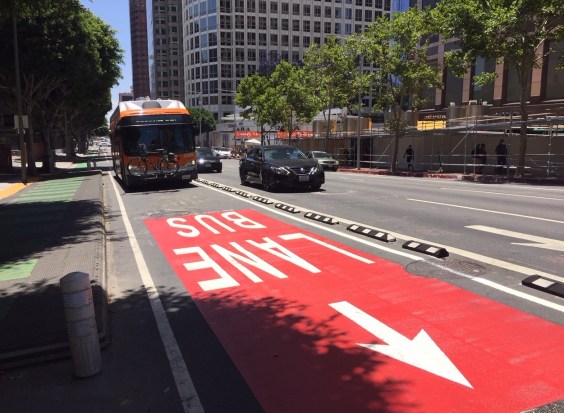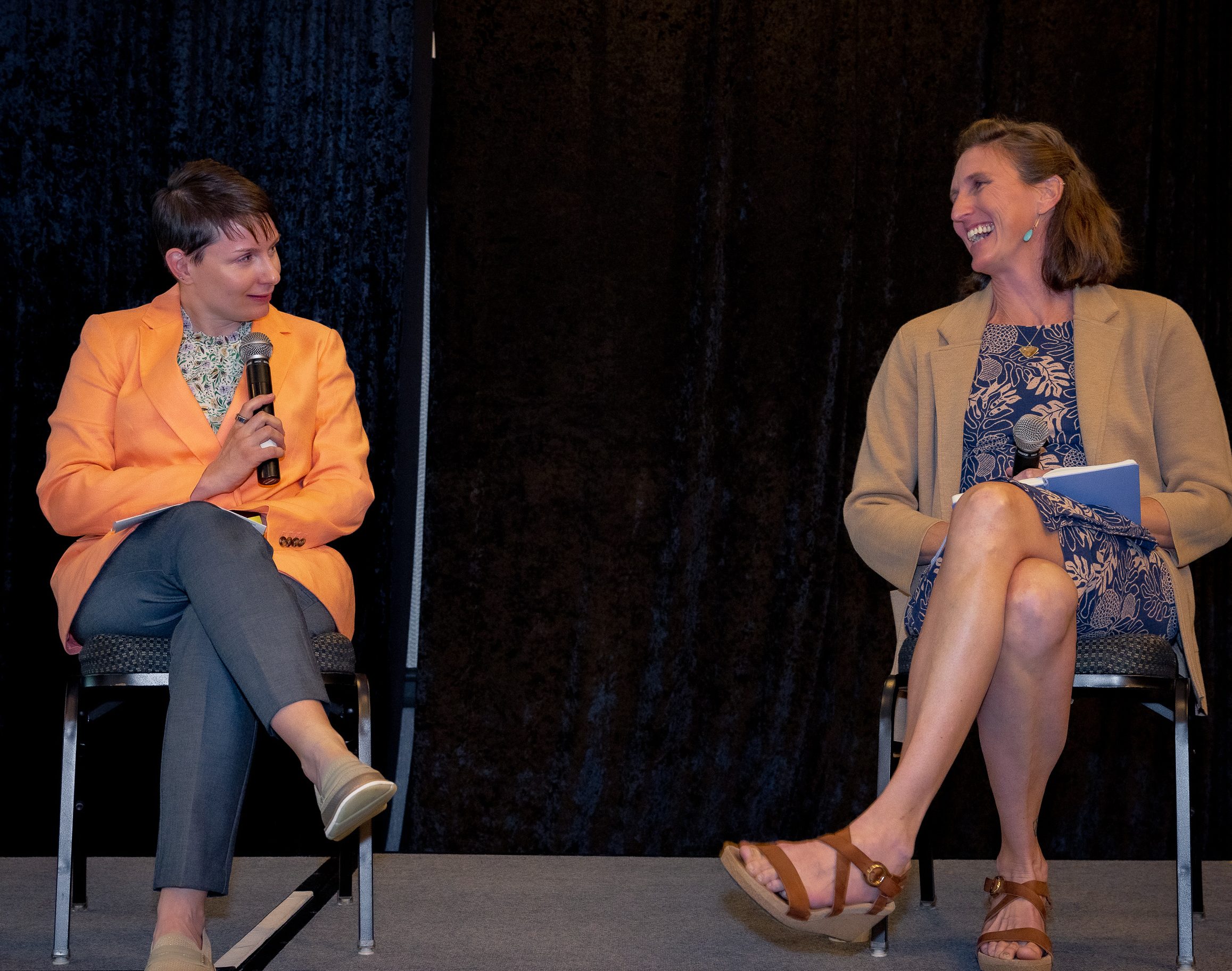Note: GJEL Accident Attorneys regularly sponsors coverage on Streetsblog San Francisco and Streetsblog California. Unless noted in the story, GJEL Accident Attorneys is not consulted for the content or editorial direction of the sponsored content.
Bill language for A.B. 1464 from Assemblymember Damon Connolly (D-Marin) has been released, and it deploys a cynical use of notions like "environmental justice" to argue for what Connolly really wants, and has always wanted: to convert the hard-fought-for bike lane on the Richmond-San Rafael bridge to a car lane.
What really sticks out about this bill language is the ugly way it uses equity and emissions to argue for expanding car capacity.
The bill outlines a brief history of the bridge's third lane, which was used to pipe water to Marin in the depths of the 1970s drought, and then to allow more traffic when the 1989 earthquake closed the Oakland bay Bridge for a while.
Then, in 2016, that third lane on the lower deck of the bridge - from Marin to Richmond - was opened up to traffic during peak hours and Marin county rejoiced. Two years later, says the bill language, "the new lane 'has eliminated afternoon congestion on eastbound I-580 onto the bridge saving drivers approximately fifteen minutes daily on their seven mile trip from Marin to Contra Costa County. This equates to annual savings of 700,000 vehicle-hours of delay on weekdays and another 91,000 vehicle hours on weekends.' The project was put up for awards, and won 'Project of the Year' in California."
Oh goody. What the bill doesn't mention is that the same project included converting the third lane on the upper deck of the bridge - from Richmond to Marin - into a bike lane, with a k-rail divider separating bike and car traffic. That was a historic, hard-fought victory for bike advocates, who for the first time had a way to get across the bay under their own power.
But the bike lane, and the k-rail, were a "pilot," and A.B. 1464 reveals what for some - including Connolly - had been the plan all along: to turn it over to cars.
It's bad enough that the bill argues that adding a lane on the bridge would somehow solve "steadily worsening" traffic congestion, which it will not do. But Connolly also tries to pretend his intent is actually to bring about justice.
According to the bill's text, "approximately 18,000 Bay Area residents cross the Richmond-San Rafael Bridge" every day, and "the vast majority of those commuters, 63 percent, are people of color. Sixty-nine percent of them do not have a college degree, and the majority of commuters, sixty percent, make less than the median income in the San Francisco Bay area. Virtually all of these drivers have no other reasonable means to get to work."
And why do they not have any other "reasonable means" to get to work? Because transit is pitiful, and the only solution leaders like Connolly can imagine is to add car capacity rather than invest in more and better service, thus ensuring that cars are the "only reasonable means to get to work."
Given the recent IPCC report that the window on solving climate change is closing - and action is needed immediately to end the use of fossil fuels - anyone pushing projects that expand capacity for more cars comes across as naive.
Still, Connolly says he has the best interest of the poor residents of Richmond at heart. "This traffic jam on the freeway also backs up local streets and roads in the City of Richmond, impacting many local families residing in traditionally disadvantaged communities." They are not in his jurisdiction, but Connolly's heart is big.
Then there's the kicker. "According to air monitors in the City of Richmond, this morning freeway backup is now the largest source of nonwildfire air pollution in the City of Richmond. This pollution is largely concentrated in disadvantaged communities."
No surprise that air monitors are picking up emissions near this freeway, but let's hope legislative analysts ask many questions about those monitors and what exactly they are picking up and where they are located. The city of Richmond, and the freeway approach to the bridge, also happen to lie in the shadow of the Chevron refinery. A less disingenuous argument would at least mention that fact.
This bill's intent is to try solving a traffic jam by creating more lanes of that traffic jam - something that does not work - and no one should be fooled by its claim that it is "in the interest of social justice, environmental justice, improving traffic flow, maximizing existing resources, reducing greenhouse gases, and reducing the environmental impacts resulting from traffic backup on the westbound Richmond-San Rafael Bridge approach."
It's particularly mendacious for anyone in 2023 to claim that adding car capacity will reduce emissions - even if it is a depressingly common argument. At the most, it might increase traffic flow temporarily, and Connolly and ilk know that. To add on claims about social and environmental justice, when the city of Richmond itself has not been asking for this, and in fact has whole-heartedly supported the current bike lane, is just duplicitous.
At least Assemblymember Connolly has been consistent. In his previous position as Marin County Supervisor and a board member of the Metropolitan Transportation Council, he has been fighting the bridge bike lane since it was installed. It makes sense that he would use his new position to bully his point of view across.
But his bad-faith use of social and environmental justice arguments show a kind of desperation that is just ugly.
